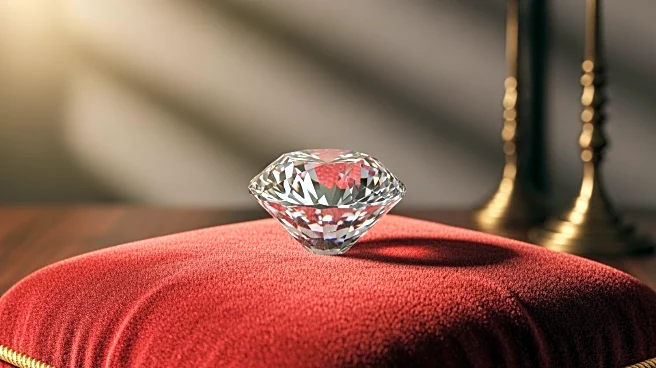What's Happening?
Recent discussions have emerged regarding the potential decline of the luxury goods industry, with claims that younger generations are moving away from traditional luxury brands like Louis Vuitton, Hermès,
and Gucci. However, this perceived shift is more likely a reflection of broader economic uncertainty rather than a fundamental change in consumer desires. Historically, luxury goods have been sensitive to economic cycles, often being the first to experience reduced spending during times of decreased consumer confidence. Despite these fluctuations, the underlying aspiration for luxury remains strong, driven by the human desire for status and comfort.
Why It's Important?
The luxury goods industry serves as a key indicator of economic health, often reflecting broader market trends. A dip in luxury spending can signal economic uncertainty, affecting related sectors such as retail and hospitality. While younger generations may prioritize practicality and minimalism, the desire for luxury persists, suggesting that the industry is resilient and adaptable. This resilience is crucial for businesses and investors who rely on luxury goods as a measure of economic stability and consumer confidence. Understanding these dynamics can help stakeholders navigate economic cycles and adjust strategies accordingly.
What's Next?
As the economy continues to fluctuate, luxury brands may need to adapt by embracing 'quiet luxury' and focusing on experiences rather than products. This shift could attract younger consumers who value authenticity and novelty. Additionally, luxury brands might explore sustainable practices to align with the values of environmentally conscious consumers. Stakeholders should monitor economic indicators closely to anticipate changes in consumer behavior and adjust marketing strategies to maintain relevance in a changing market.
Beyond the Headlines
The discussion around luxury goods highlights broader cultural shifts, including the evolving definition of luxury and its role in society. As consumers become more purpose-driven, luxury brands may need to redefine their value propositions to emphasize ethical production and social responsibility. This evolution could lead to a more inclusive and diverse luxury market, reflecting changing societal values and priorities.










